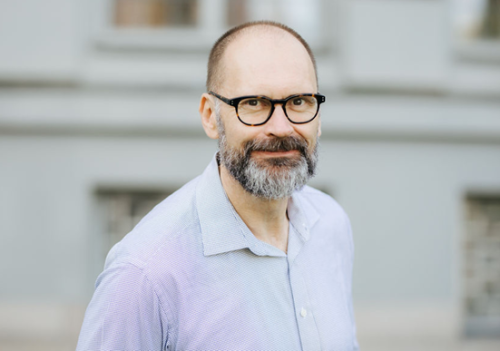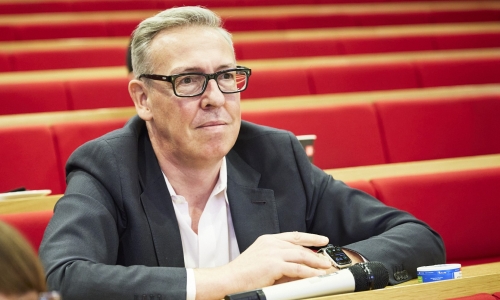Date: Wednesday 28th January 2026 (updated) Time: 18:30-20:00 GMT
Venue: Sheikh Zayed Theatre, Cheng Kin Ku Building, London School of Economics (map) (updated)
Speaker: Per Strömberg (Stockholm School of Economics)
Panellist: Kurt Björklund (Permira)
Chair: Ulf Axelson (LSE Finance)
In this talk, Per Strömberg will present a simple economic framework for understanding the economic role of private equity.
The framework helps answer questions such as:
- Why would private equity ownership improve firm performance?
- If PE is so superior, why are not all firms PE-owned?
- Why don’t other owners and firms implement the same techniques as PE-owners do?
- Can PE returns consistently outperform public equity markets?
- Why is PE activity so cyclical?
Event hashtag: #LSEPrivateEquity




Per (Pelle) Strömberg is the Centennial Professor of Finance and Private Equity at the Stockholm School of Economics (SSE) and Visiting Professor of Finance at the University of Chicago Booth School of Business. During 2025, he is the BP Centennial Visiting Professor in Finance at the London School of Economics. He holds a PhD and MSc from Carnegie Mellon University, and an undergraduate degree from SSE. His research is in the field of corporate finance and governance, much of it focusing on private equity, and on the effect of climate policy of firms, and has been cited more than 15,000 times in Google Scholar. His current research projects include the role of business angels in entrepreneurial finance, the responses of firms to taxation of greenhouse gas emissions, and the interdependence between private and public equity markets.
His work has been acknowledged by best paper prizes in the Journal of Finance (3 times), Journal of Financial Intermediation, Western Finance Association, and the European Corporate Governance Institute. In 2011, he was awarded the Assar Lindbeck Medal, given bi-annually to an economist active in Sweden below the age of 45. He is a member and Second Vice President of the Swedish Royal Academies of Sciences, a member of the Royal Swedish Academy of Engineering Sciences (IVA) and served on the prize committee for the Sveriges Riksbank Prize in Economic Sciences in Memory of Alfred Nobel 2012-2022 (including as a chair of the committee 2016-18). Outside of academia, he is currently a board member of AP4 and NASDAQ Clearing AB, and has previously served on the boards of Conversus Capital LP, AP6, and Evisens Securities AB.

Kurt Björklund became Executive Chairman of Permira in 2024, has been the Managing Partner of Permira since 2021 and the Co-Managing Partner since 2008. He serves on the Permira Holdings Limited Board, the Executive Committee, the Permira Growth Opportunities Investment Committee, the Climate Investment Committee and co-chairs the main funds Investment Committee. Kurt joined the London office in 1996 and became a Partner in 2001. From 2003 to 2008 he was responsible for the Nordic office. Kurt has been involved in a number of transactions including AU System, Inmarsat and TDC. He currently serves on the board of Edprima.
Prior to joining Permira, Kurt worked for Boston Consulting Group in Stockholm.

Ulf Axelson joined the London School of Economics in 2009. Since August 2015, he is Professor in Finance and Private Equity. Since 2010, he is the inaugural director of the MSc in Finance and Private Equity program. Dr Axelson was previously an Associate Professor of Finance at the Stockholm School of Economics, and before that an Assistant Professor of Finance at the Graduate School of Business of the University of Chicago. He received his Ph.D. in Financial Economics from Carnegie Mellon University and holds an MBA from the Stockholm School of Economics.
Professor Axelson's research lies within the fields of private equity, financial innovation and security design, corporate finance, auction theory, and financial intermediation. His research has been published in leading finance journals such as the Journal of Finance and the Review of Financial Studies, and has been widely presented at leading universities as well as numerous conferences. He won the Brattle Group Prize for the best paper in corporate finance published in the Journal of Finance 2009 (for the paper “Why are Buyouts Levered? The Financial Structure of Private Equity Firms,” joint with Per Strömberg and Michael Weisbach), the Brattle Group Distinguished Paper Prize in 2014 (for the paper “Borrow Cheap, Buy High? The Determinants of Leverage and Pricing in Buyout,” joint with Tim Jenkinson, Per Strömberg, and Michael Weisbach), and the Brattle Group Distinguished Paper Prize in 2015 (for the paper “Wall Street Occupation,” joint with Philip Bond). His research was awarded the Henderson Award for Excellence in Economic Theory in 2000.

